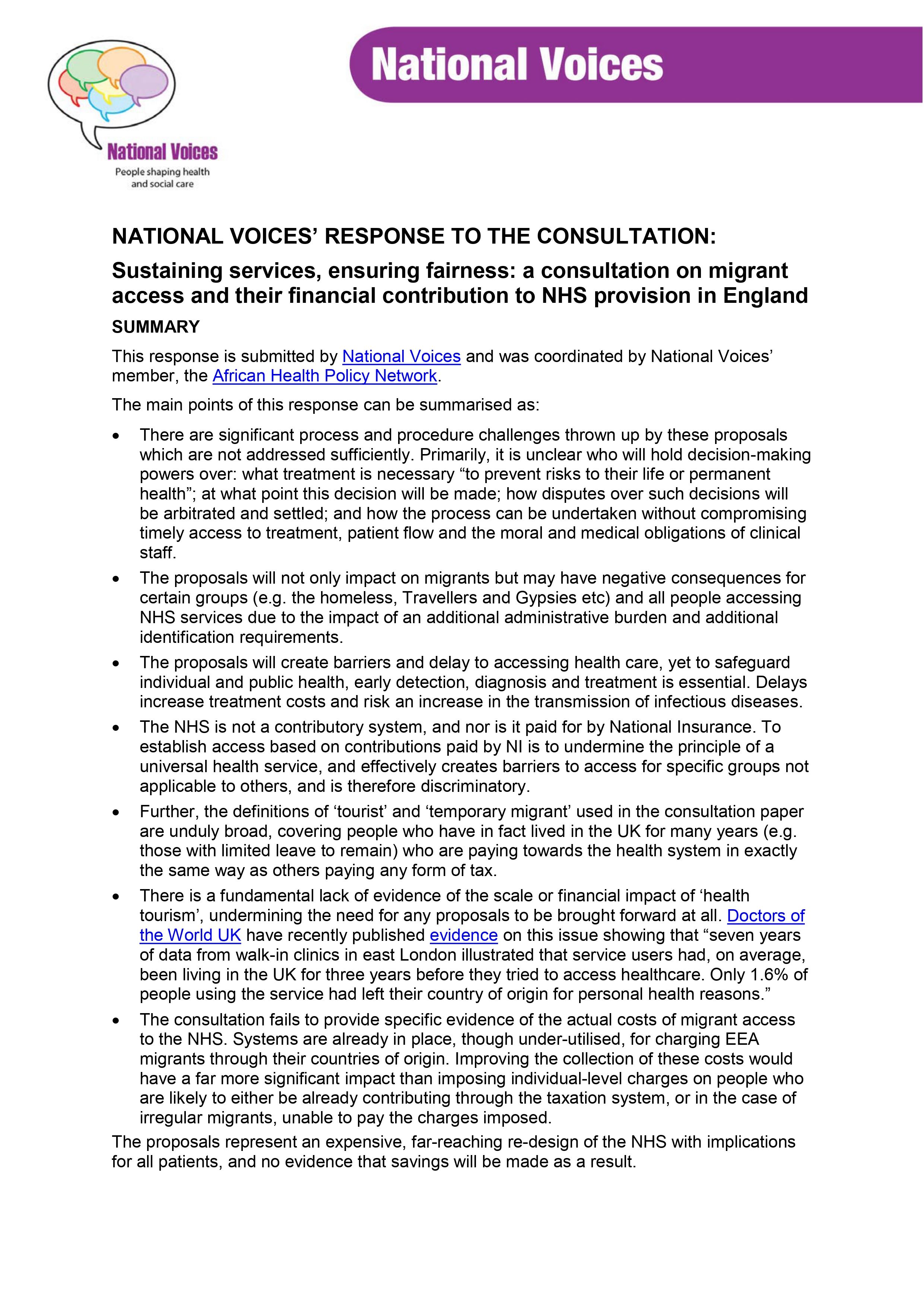
Submission to the Department of Health: Migrant access to the NHS
- Health inequalities
The main points of this response can be summarised as:
- There are significant process and procedure challenges thrown up by these proposals which are not addressed sufficiently. Primarily, it is unclear who will hold decision-making powers over: what treatment is necessary “to prevent risks to their life or permanent health”; at what point this decision will be made; how disputes over such decisions will be arbitrated and settled; and how the process can be undertaken without compromising timely access to treatment, patient flow and the moral and medical obligations of clinical staff.
- The proposals will not only impact on migrants but may have negative consequences for certain groups (e.g. the homeless, Travellers and Gypsies etc) and all people accessing NHS services due to the impact of an additional administrative burden and additional identification requirements.
- The proposals will create barriers and delay to accessing health care, yet to safeguard individual and public health, early detection, diagnosis and treatment is essential. Delays increase treatment costs and risk an increase in the transmission of infectious diseases.
- The NHS is not a contributory system, and nor is it paid for by National Insurance. To establish access based on contributions paid by NI is to undermine the principle of a universal health service, and effectively creates barriers to access for specific groups not applicable to others, and is therefore discriminatory.
- Further, the definitions of ‘tourist’ and ‘temporary migrant’ used in the consultation paper are unduly broad, covering people who have in fact lived in the UK for many years (e.g. those with limited leave to remain) who are paying towards the health system in exactly the same way as others paying any form of tax.
- There is a fundamental lack of evidence of the scale or financial impact of ‘health tourism’, undermining the need for any proposals to be brought forward at all. Doctors of the World UK have recently published evidence on this issue showing that “seven years of data from walk-in clinics in east London illustrated that service users had, on average, been living in the UK for three years before they tried to access healthcare. Only 1.6% of people using the service had left their country of origin for personal health reasons.”
- The consultation fails to provide specific evidence of the actual costs of migrant access to the NHS. Systems are already in place, though under-utilised, for charging EEA migrants through their countries of origin. Improving the collection of these costs would have a far more significant impact than imposing individual-level charges on people who are likely to either be already contributing through the taxation system, or in the case of irregular migrants, unable to pay the charges imposed.
The proposals represent an expensive, far-reaching re-design of the NHS with implications for all patients, and no evidence that savings will be made as a result.
If you would like to read this submission in an alternative format, please get in touch.